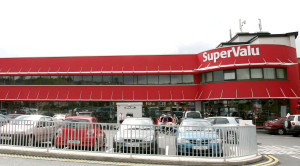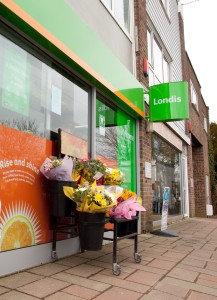Musgrave to bow out of British market

After reporting underperformance in the GB market for a number of years, Musgrave has found a buyer for its Londis and Budgens brands in the UK. Fionnuala Carolan spoke with Chris Martin about the sale of its GB portfolio
17 June 2015

Musgrave overtook Tesco as the leading grocery business for a number of weeks in May this year with just over 25% market share
In May, Musgrave announced that it will sell its business in Great Britain, which operates the Budgens and Londis brands, to Booker for €57 million. Budgens and Londis combined have almost 1,800 stores so this is a significant deal for Musgrave and shows that their focus is certainly on the Irish market for the foreseeable future.
Chris Martin, CEO of Mugrave explained the move by outlining the fact that the grocery market in Great Britain is experiencing huge changes, with intense competition and operating in a deflationary environment. “Given these challenging market dynamics, we carefully evaluated all of the possible options for our GB business. Having received a proposal from Booker, we concluded that a sale to Booker is the right thing for the group and would be the most advantageous outcome for our retailers, colleagues and suppliers in Great Britain,” he said.
Booker already owns the Premier retail brand in Britain, which has more than 2,900 stores, and the budget Family Shopper brand. Martin said he believes that Booker will be a good fit for retailers as it will continue to develop the Budgens and Londis brands by utilising the supporting supply chain and head office. “Retailers will benefit from Booker’s buying strength, an extensive operational footprint throughout Great Britain including a nationwide distribution and cash and carry infrastructure and a service culture that is proven to meet the needs of independent retailers,” he said.
Booker will be taking control of 1,630 Londis stores and 167 Budgens stores. In the year to December 2014, Musgrave Retail Partners GB Limited had sales of £833 million, and made an operating loss before exceptional items of £7.4 million.
Loss making
It is no secret that Musgrave has struggled with its business in the UK for some time now. The company had been working on a turnaround of the British business and had narrowed losses from €21 million to €7 million. Martin said Musgrave had looked at investing further in Britain to try to save the business but said there were few opportunities for growth and it would have taken too much time to grow the operation while absorbing more losses. “Our business was less than 0.5% of the market,” he said. “What we found was that the market has become tougher, just think of Asda’s results yesterday and we also saw that a lack of scale meant that we were going to continue to struggle.
“We’ve owned the business for 13 years but there is no doubt that we’ve found the last few years tough. You really need scale. The market is very concentrated and the only way for us to really grow was through acquisition and there are very few acquisition opportunities in the UK market if any.”
While he says that the decision to sell Budgens and Londis is difficult, he thinks it will allow the group to drive forward with its growth strategy which is about developing its retail, convenience and cash and carry brands in the Republic of Ireland, Northern Ireland and Spain.
Share business practices
Martin told ShelfLife that Booker approached them with the proposal and they were happy to consider it as Musgrave had been actively looking for a buyer for some time. “As we said in our announcement we were looking at our turnaround and Booker came to us with a proposal but it was an easy one to talk through with them because we’ve known them for so long.”
Martin explains how this agreement includes the development of a mutually beneficial strategic partnership. “Booker and Musgrave are both first class businesses in what they do in their core markets and I think there is a real opportunity to share on format developments, digital innovation, buying opportunities and the sharing of best practice to achieve cost savings and efficiencies for the business.
“They are interested in some of the initiatives we have in Centra. They have announced this morning very strong growth in their digital business and while our digital business is making very good progress, there is an opportunity to share there. And also from the point of trading and sourcing – it does give some of the unique suppliers that we have been developing and working with in Ireland access to a major player like Booker in the UK market.”
Competition Authority approval
Completion of the transaction is subject to CMA (Competition and Markets Authority) approval. On this matter, Martin says: “We’ve done a lot of preparation but at the end of the day we are subject to the way that they look at it and I think it’s going to take several months. We don’t want them thinking we are pre-judging the outcome they come up with.”
Musgrave’s main competitor in the convenience market in Ireland is Spar operators, BWG Foods. They are also awaiting Competition Authority approval in order to take over the Londis brand here in Ireland. Martin agrees that they are strong competitors but says they are focusing on their own business rather than concentrating on this. “The process they [BWG] are going through is similar to the process we will go through in GB. At the end of the day our philosophy has been to focus on our own business and own brands and absolutely connect them with the shoppers so from that perspective I think we are doing some really good work but they are good competitors.”
Competition in the Irish market
He is upbeat when speaking about the foreseeable future of Irish grocery retailing. While he readily admits that the market is highly competitive here, he can see growth in the next few years.
“I think we can see growth coming throughout the market. Trends are changing and people’s interest in food is changing in that they are concerned about health and well being, and there is a strong relationship with community.
“I think the simple fact is, and consumer indexes are showing, that people are getting some confidence back post budget so people are spending slightly more. I also think you are looking at an economy that is getting increased investment and will continue to grow especially with an increase in population so in that context there is still a strong opportunity for our brands.”
He thinks what we have seen in Ireland has been a precursor for what the British market is facing. “Clearly we’ve seen the growth of the discounters, we’ve seen deflation but I do believe we are starting to come out the other side. And the reality is we’ve all had to face a consumer who has been very challenged and has been looking for value and I believe that things like own brand development and development of our online ranges will help the Irish consumer.”
Top of the market
When asked about his opinion on Musgrave reaching the top spot in the Kantar Worldpanel market share for the Irish market during May, Martin was pragmatic about the results. “It’s great to get the recognition of market share data but we’ve got to keep being number one in the minds of the consumers. I think that’s the only way to win. And I’m not saying we don’t appreciate the numbers but it’s how we perform and if we are connecting and that’s where we come back to the core results and see growth in our business.”
With all its concentration now on its Irish, Northern Irish and Spanish businesses, we can expect Musgrave to drive competition even harder in these markets in the years ahead. Dunnes and Tesco be warned!



 Print
Print





Fans 0
Followers